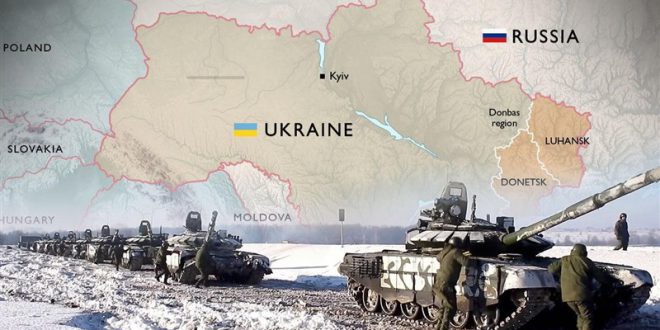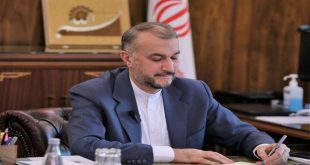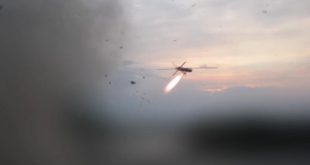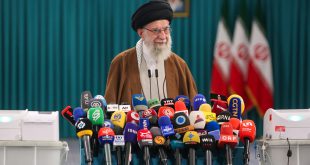‘Left Alone’, Ukraine Leader Pleads for Talks With Russia
Russian troops bore down on Ukraine’s capital Friday, with gunfire and explosions resonating ever closer to the government quarter.
With reports of hundreds of casualties from the warfare, there were growing signs that President Vladimir Putin’s Russia may be seeking to overthrow Ukraine’s Western-backed government.
In the fog of war, it was unclear how much of Ukraine remains under Ukrainian control and how much Russian forces have seized. The Kremlin accepted Kyiv’s offer to hold talks.
The U.S. and its allies slapped ever-tougher sanctions on Russia as the operation reverberated through the world’s economy and energy supplies. UN officials said they were preparing for millions to flee Ukraine. NATO leaders held an urgent meeting to discuss how far they can go to challenge Putin without engaging Russian forces in direct war.
Day 2 of the conflict focused on the Ukrainian capital, where reports cited explosions starting before dawn and gunfire in several areas.
Russia’s military said it had seized a strategic airport outside Kyiv that allows it to quickly build up forces to take the capital. It claimed to have already cut the city off from the west.
Intense fire broke out on a bridge across the Dneiper River dividing the eastern and western sides of Kyiv. Another key bridge leading toward the capital was blown away, with smoke rising from it.
Ukrainian officials reported at least 137 deaths on the Ukrainian side. Russian authorities released no casualty figures, and it was not possible to verify the tolls.
UN officials reported 25 civilian deaths, mostly from shelling and airstrikes, and said that 100,000 people were believed to have left their homes, estimating up to 4 million could flee if the fighting escalates.
Ukrainian President Volodymyr Zelensky pleaded with Russia’s government to hold talks, and with Western powers to act faster to cut off Russia’s economy and provide Ukraine military help.
Zelensky’s whereabouts were kept secret, after he told European leaders that he was Russia’s No. 1 target.
“We have been left alone to defend our state,” Zelensky said in a post-midnight video address to the nation. “Who is ready to fight alongside us? I don’t see anyone. Who is ready to give Ukraine a guarantee of NATO membership? Everyone is afraid.”
He also offered to negotiate on one of Putin’s key demands: that Ukraine declare itself neutral and
abandon its ambition of joining NATO. And the Kremlin responded that Russia was ready to send a delegation to Belarus to discuss that. But Russian Foreign Minister Sergei Lavrov suggested it was too late, saying Zelensky should have agreed to talks earlier on. Lavrov said Moscow did not want “neo-Nazis” to govern Ukraine. Moscow, he said, would be ready to hold talks with Kiev, but only once Ukraine’s military had laid down its arms.
Putin said the West left him no other choice by refusing to negotiate on Russia’s security demands.
The Russian leader hasn’t said what his ultimate plans for Ukraine are. Lavrov gave a hint, saying Friday: “We want to allow the Ukrainian people to determine its own fate.” His spokesman Dmitry Peskov said Russia recognizes Zelensky as Ukraine’s president, but wouldn’t say how long the Russian military operation could last.
In Kyiv, the body of a dead soldier lay near an underpass. Fragments of a downed aircraft smoked amid the brick homes of a residential area. Black plastic was draped over body parts found beside them. And people climbed out of bomb shelters, basements and subways to face another day of upheaval.
As air raids sirens sounded in the capital early Friday, guests of a hotel in the city center were directed to a makeshift basement shelter, lined with piles of mattresses.
The Ukrainian military reported significant fighting near Ivankiv, about 60 kilometers (40 miles) northwest of Kyiv, as Russian forces apparently tried to advance on the capital from the north. Russian troops also entered the city of Sumy, near the border with Russia that sits on a highway leading to Kyiv from the east.
With social media amplifying a torrent of military claims and counter-claims, it was difficult to determine exactly what was happening on the ground.
The operation began early Thursday with missile strikes on cities and military bases, followed by a multipronged ground assault that rolled troops in from areas in the east; from the southern region of Crimea, which Russia annexed in 2014; and from Belarus to the north.
After Ukrainian officials said they lost control of the decommissioned Chernobyl nuclear power plant, scene of the world’s worst nuclear disaster, Russia said Friday it was working with the Ukrainians to secure the plant.
U.S. President Joe Biden announced new sanctions that will target Russian banks, oligarchs, state-controlled companies and high-tech sectors, saying Putin “chose this war.” He said the measures were designed not to disrupt global energy markets. Russian oil and natural gas exports are vital energy sources for Europe.
The European Union neared an agreement to slap asset freezes on Putin and Lavrov themselves, in addition to other sanctions. Britain is freezing the assets of all large Russian banks and planning to bar Russian companies and the Kremlin from raising money on British markets.
Kremlin spokesman Peskov said Friday Russia will impose retaliatory sanctions on Western nations on the basis of reciprocity.
He said sanctions would cause problems for Russia but they would be solvable, as it had reduced its dependence on foreign imports.
European Economic Commissioner Paolo Gentiloni admitted that the sanctions on Russia would not be without economic pain for the bloc, likely to come mainly from higher energy prices.
“Of course we will pay a price economically for this war,” he said on entering talks of EU finance ministers in Paris.
“We will discuss this today, how this war will impact in our economic forecasts,” he said, adding the upshots from the sanctions “are costs that we must afford.”
Gentiloni said the Ukraine crisis made the 4.0% growth forecast for the 19 countries sharing the euro more uncertain.
French President Emmanuel Macron said it remained useful “to leave this path open so that the day when the conditions can be fulfilled, we can obtain a cessation of hostilities.”
Macron was the only Western leader on Thursday to speak to Putin. The Kremlin said Putin held a “frank” conversation with the French leader.
French Foreign Minister Jean-Yves Le Drian, however, said the Russian leader needs to understand that NATO is a nuclear alliance even as he ruled out the alliance’s intervention to defend Ukraine.
Le Drian also said Ukraine had made a list for weapons they needed and “we are studying that list in order to meet their requests as soon as possible”, but emphasized that Europe and NATO were not looking for a military intervention.
The British armed forces minister also warned against sending NATO and UK troops to Ukraine, saying any deployment would cause an “existential” threat.
Armed Forces Minister James Heappey said British and NATO “troops should not (and) must not play an active role in Ukraine.”
“We must all be clear what the risk of miscalculation would be, and how existential that could very quickly become if people miscalculate and things escalate unnecessarily,” he warned.
“This is a highly kinetic combat situation and the probability of NATO troops being caught up in combat with Russian armed forces is far too high and would lead to huge escalation,” he said.
On Friday, Macron said France was speeding up its deployment of troops to bolster NATO’s eastern flank in Romania.
Talking after an emergency summit with European Union leaders, Macron said he was “accelerating” the dispatch of forces.
Meanwhile, the United States said Thursday it was sending another 7,000 troops to Germany.
NATO is looking to establish battle groups in the southeast of the alliance, including in Romania. France has offered to lead the new deployment in that country.
U.S. House speaker Nancy Pelosi said lawmakers want to provide Ukraine with $600 million for “lethal defense weapons”.
Ukrainian Foreign Minister Kuleba earlier said he had spoken to U.S. Secretary of State Antony Blinken, who told him about “plans to deliver new defensive weapons to help Ukraine defend itself”.
 صراط عشق صراط عشق
صراط عشق صراط عشق




